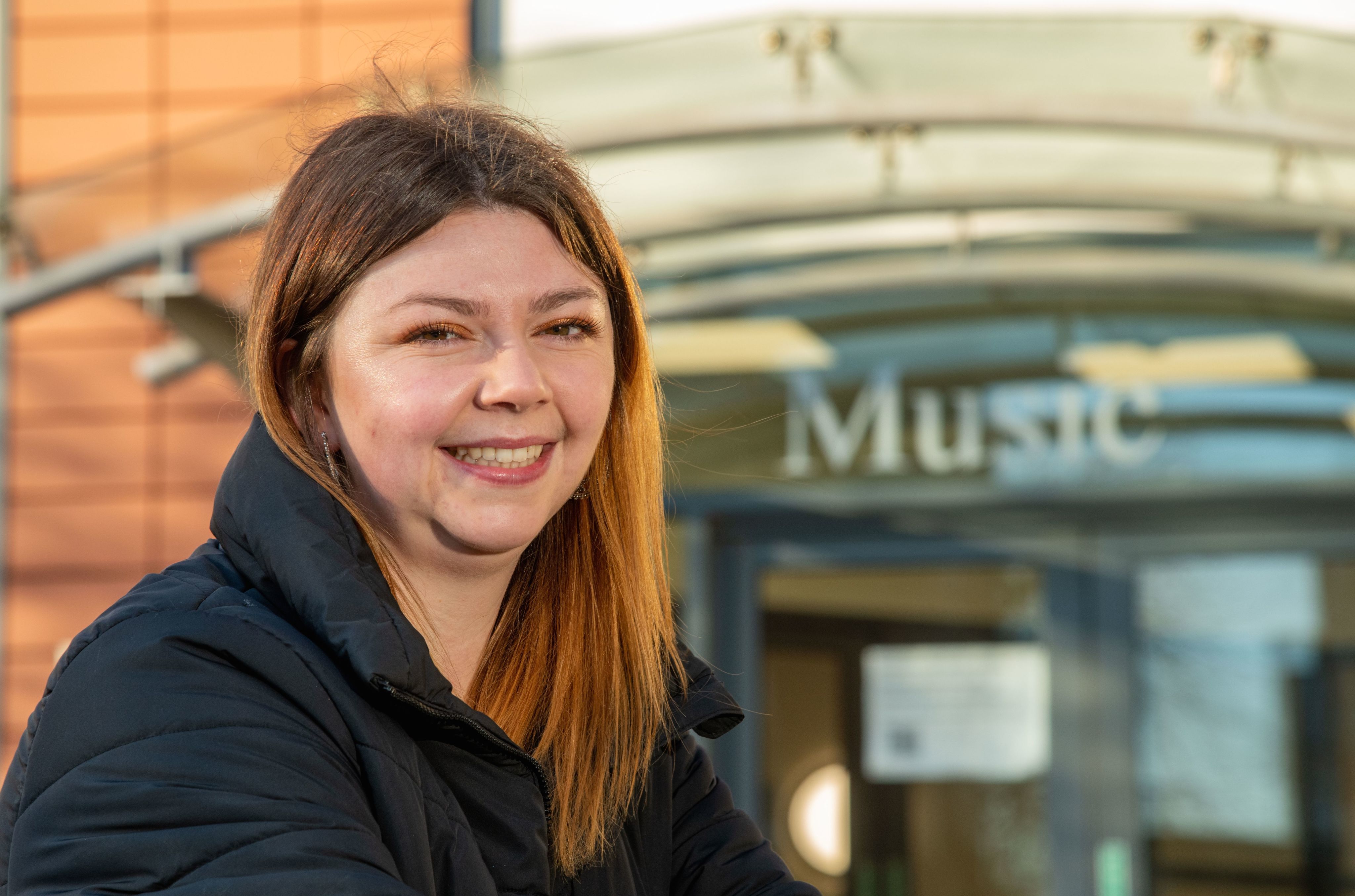Tackling
dementia
through music

Music can be an incredible way to engage with people with dementia."
Elizabeth saw the power of this connection at first hand while performing for a choir of dementia patients and their carers: “It was amazing to see the impact it made. One chap was mute – and yet we got him singing and afterwards he was even able to speak to his wife for a few minutes. When we speak, we only use the right hemisphere of our brain, but when we sing, we use it all.”
Music can also help those who look after people with dementia: “Family carers – usually their husband or wife – can often feel isolated. The choir was a great opportunity for them to socialise and be with people who understood the issues they face.”
Now, supported by a PhD scholarship from the Audrey and Stanley Burton Trust, Elizabeth is exploring how to make musical services more accessible to benefit both the person with dementia and their carer. “There’s a lot of research about the person with dementia but nothing about the experience of the person sitting next to them. I want to explore how we can use music to address their mental health and well-being needs.”
The scholarship is critical to the research. “I worked four nights a week to fund myself during my Master’s course. By the time I finished, I was burned out – and there was no way I could have funded myself on a PhD.
“I approached lots of funding bodies and got plenty of rejections, but then I saw this opportunity with the School of Music and decided to apply. I was very lucky because the Trust had just one place available. I cried when I found out I’d been successful. It is allowing me to prioritize my research and not worry about fees.”
It’s also giving Elizabeth valuable spare time for performing: “I play in several bands, playing all kinds of music – folk, punk, rock, contemporary. And thanks to this funding, I can research something I’m really passionate about.”
